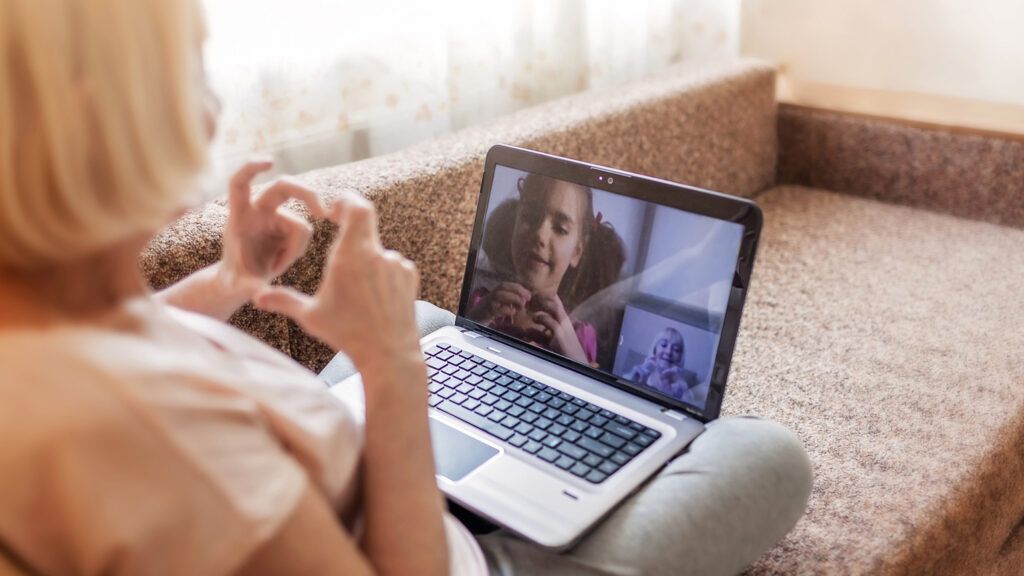If you’ve been caring for a loved one at home, chances are you’re no stranger to the slippery slope that can lead to social isolation. It’s easy to close yourself off to meaningful relationships and activities when you devote so much of your love and attention to a mother, father or other family member who lives with dementia. With social distancing measures imposed as a result of Covid-19, staying in touch with others is now a greater challenge than ever.
On the other hand, if you’ve been juggling a job outside the home along with caregiving responsibilities, it’s likely your daily work life has been altered due to these measures. In this case, you may be handling your job from home while you care for your loved one there. That means that, for the foreseeable future, you’ve lost physical contact with co-workers and other touchstones from the world outside your front door.
In either scenario, your sense of self can become a casualty unless you make sure to take regular respite breaks and pay attention to what makes you tick in your own special way. One simple and healthy way to use this period at home may be to put moments aside to think ahead, center yourself and remember what makes you happy and what matters to you. Devoting even 15 to 30 minutes of quiet each day to read something uplifting and inspirational can have a lasting effect and help you to remain positive.
One study has shown that, although providing care to a family member or friend may provide psychological benefits, unpaid or “informal” caregivers can experience loneliness due to “shrunken personal space and diminished social interactions.”
But, according to the study, some forms of caregiver loneliness may be better managed through respite services and “a heightened sensibility and social appreciation of caregivers’ valued contributions.” In short, you need to rest, and it helps when others understand and appreciate what you do.
Because time is at a premium, with all that you’ve taken on, you may want to consider hiring an in-home caregiver for your loved one. Home care and home health aides are trained to provide all levels of service to older adults, from household chores to skilled health care. Having a compassionate professional caregiver in your home could free up time in your day—whether it’s an hour or two, or more—to allow you to put some much-needed focus on yourself. This is particularly important now, as friends and other family members you may have relied on for help have to remain at a distance for the time being. Remember to check with your loved one’s doctor before bringing anyone into the home and check with potential home care agencies about their policies and protocols to protect a loved one’s health. Even if it’s not possible to bring in outside help immediately, this could be a time to research options and plan for getting extra help in the future.
The American Psychological Association (APA) recommends a number of ways to access the social support you need in the current climate, including using telehealth options for psychotherapy, if you feel you need it.
“If you already have a psychologist, contact them ahead of a potential quarantine to see if they can continue your sessions using phone-based or online delivery,” the APA website suggests.
Staying virtually connected with others is another important coping mechanism, according to the APA. “Your face-to-face interactions may be limited, but psychologists suggest using phone calls, text messages, video chat and social media to access social support networks. If you’re feeling sad or anxious, use these conversations as an opportunity to discuss your experience and associated emotions. Reach out to those you know who are in a similar situation.”
Caregiver support groups can also allow you to interact openly with others who understand what you’re going through. The Care.com website lists several online options.
In addition, the APA recommends balancing time spent on news and social media with other activities unrelated to quarantine or isolation, such as reading, listening to music or learning a new language.
There are now many creative ways to connect virtually with communities that resonate with you. Among these are: online church services; sites that allow you experience the arts from the comfort of home; book clubs; and choirs. Or you may want to set aside part of your day to create your own art, write in a gratitude journal, do some gardening, take an online exercise class or watch a movie that makes you laugh or a rom-com that never seems to get old.
It may even be that you feel a deep urge to volunteer. If you have the desire—and the emotional and physical bandwidth—to take on that sort of project at the moment, there are opportunities to do so online, as well. Research has shown that volunteering can have positive mental and physical health benefits.
Remember that, regardless of which direction you may choose to go, don’t push too hard. This is a challenging time, so make it a point to be good to yourself—every day. Rest matters. Doing what makes you happy matters. You matter. And being good to yourself helps you to be good to your loved one.




